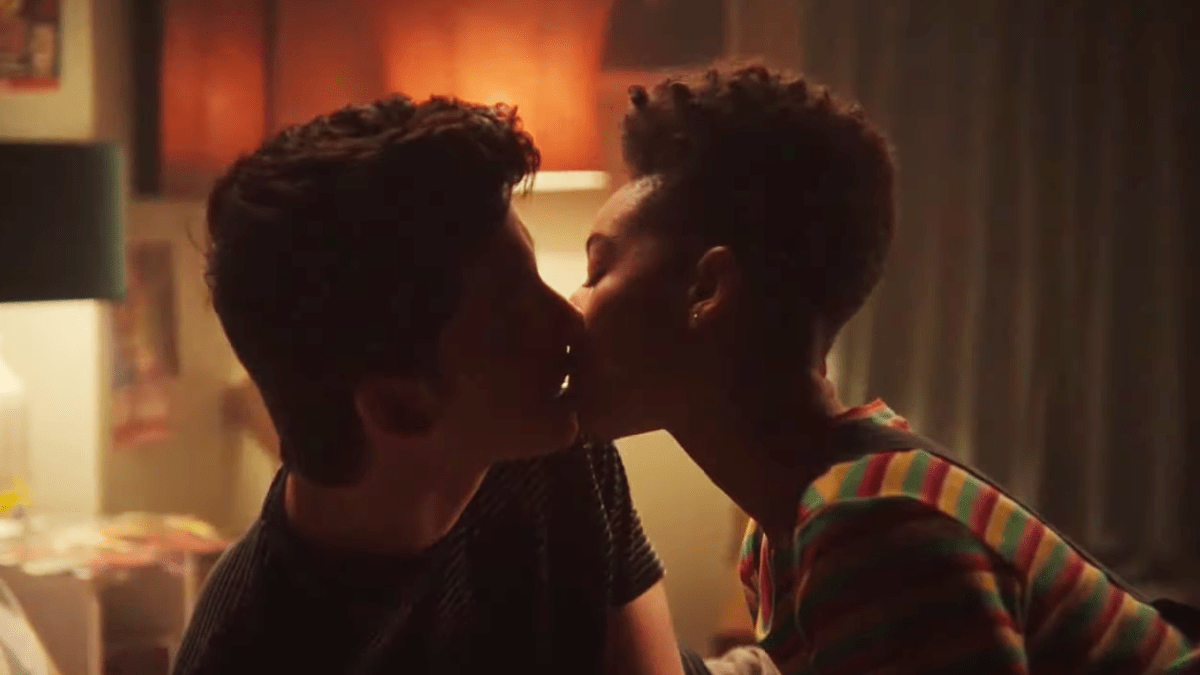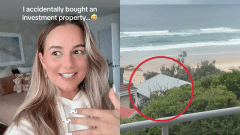
I started working from home last week. I’m not going to bullshit you and say it’s been a dream, because it certainly hasn’t been. I hate it with every cell in my body, but I know it’s the right thing to do. Staying home – social distancing – is the least I can do to slow the spread of COVID-19. But like anyone else, I have questions. I know the gist of social distancing, but I’ve (of course) overthought the process to the extremes, to the worst case scenario of never ever stepping foot outside again. So to put everything in one place, here’s what you need to know about social distancing and some helpful do’s and don’ts.
Social distancing is pretty much the technical term for avoiding close contact with others, which is important because as the Department of Health has said many times now, COVID-19 is most likely to spread from person-to-person. The more space between you and others, the harder it is for coronavirus to spread. The advised space you should set between you and another person is at least 1.5 metres. You should also be washing your hands for at least 20 seconds with soap and water.
Last night, Prime Minister Scott Morrison announced a number of widespread restrictions on social gatherings to come into full effect from midday on Monday. This included the closure of cinemas, entertainment venues, casinos, and night clubs. It also covers religious gatherings, places of worship or funerals. All of this applies to outdoor spaces associated with these venues and gatherings as well.
Can I still go to the pub?
Unfortunately, no. From midday local time on March 23, all pubs, registered and licensed clubs (excluding bottle shops attached to these venues), and hotels (except for accommodation) will close.
What about the gym?
Nope. Gyms and indoor sporting venues will also close as well.
Can I still get meals delivered from my local restaurant?
Absolutely. Restaurants and cafes will still be doing takeaway and/or home delivery. You just can’t dine in.
ICYMI: UberEats now has a no-contact delivery feature available called “leave at door”. You’ll need to update your app if you haven’t already.
Can I have my mates around for dinner?
It’s inadvisable. Just this morning, Victorian premier Daniel Andrews shared details of how one dinner party resulted in the entire group becoming infected.
“It’s not essential. It’s not needed. All it will do is spread the virus,” he said.
“We had a case last week where a group of people a dozen or so, went to a dinner party,” he shared. “As best as we can tell the dinner party started with one person who had the coronavirus. By the end of the dinner party almost everybody at the dinner party had the coronavirus.
“This spreads rapidly. If people simply behave as normal, if they don’t take this seriously, if they act selfishly, then people will die. I can’t be any clearer than that.”
Should I be using cash when I’m grabbing groceries?
There hasn’t been a strict ban on using cash, but since we know the virus can spread through objects, it would be safer to use your tap feature.
Working from home isn’t an option for me, what do I do?
In short, limit your exposure to people who could potentially be carrying the virus. This means no hand-shaking or exchanging physical greetings. Stay at least 1.5 metres away from others, wash your hands for the correct amount of time, and use hand sanitiser. If you’re taking public transport to work, try and travel at quieter times.
What if I need to catch an Uber/Didi/Ola?
You still can, but sit in the backseat so that you’re separated from the driver by a reasonable difference.
What’s the go on the ‘1 person per 4 square metre rule’?
Morrison, aided by chief medical officer Brendan Murphy, announced on Friday that all non-essential gatherings of less than 100 people in an enclosed space need to use the 1 person per 4 square metre rule.
“If you’ve got a premises, if you’ve got a meeting room or something like that, that’s 100 square metres, then you can have 25 people in that room,” he explained.
Can I still go for a swim in the ocean?
You can, unless the beach has been closed. Remember, the ban on outdoor gatherings of over 500 people is in full effect. Unfortunately, a huge chunk of people chose not to listen to this rule so now Bondi, Bronte, Clovelly, Coogee, Maroubra, and Tamarama beaches have all been closed to the public.
Can I go for a swim in a pool?
According to the Victorian Department of Health and Human Services (HHS) and SPASA Australia (Swimming Pool and Spa Association), you can.
“The purpose of balanced pool or spa water chemistry is to kill bacteria and viruses,” Lindsay McGrath, SPASA CEO says. Quoting the Centre for Disease Control, otherwise known as CDC, “There is no evidence that COVID-19 can be spread to humans through the use of pools and hot tubs. Proper operation, maintenance, and disinfection (e.g., with chlorine and bromine) of pools and hot tubs should remove or inactivate the virus that causes COVID-19.”
In saying that, a number of aquatic centres, including Sydney Olympic Park Aquatic Centre, have closed following the government’s decision on public gatherings.
Should we be taking precautions with our partners?
“If your partner is somebody that you normally live with and share a bed with, a meal with every single day, then I think we can all say that ship has sailed,” Dr Ginni Mansberg, general practitioner, tells me. But you should still practise good hygiene and social distancing, of course. Especially if one of you is stepping outside for work or to pick up groceries and whatnot.
Is casual sex with a random completely out of the question?
Yes. “Maybe some casual phone sex?” Dr Ginni Mansberg says.
I’m dating someone I don’t live with, can we still see each other?
So long as you’re both genuinely practising good hygiene and social distancing, and have not been overseas or in close contact with a confirmed case, then there’s a low risk of passing on the virus and vice versa. If you have just been overseas, you must complete the mandatory 14-day self-isolation before you can see your boo again.
Can I visit my family?
Same thing applies, but you and your family should always assess your risk of transmission before every visit.
My roommate just got back from overseas, what do I do?
Okay, this one’s tricky.
The Department of Health’s official recommendation is that if your roommate is just self-isolating as a precaution after an overseas trip then you do not need to isolate with them. But if your roommate does develop symptoms and is suspected to have coronavirus, then you will be classified as a close contact and will need to be isolated.
Hassan Vally, an epidemiologist and associate professor in public health at La Trobe University, advises that your roommate should keep themselves as far away from the rest of the residents as possible. Use separate bathrooms if possible, wash your hands, and frequently disinfect surfaces and doorknobs. Under no circumstance are you allowed to have visitors. Not even if said visitor wants to come over and see you, not your roommate.
What about chilling in open spaces, like a park?
Going to the park for a walk or a cute solo picnic is fine as long as you practise social distancing.
“Whether you’re indoors or outdoors, you need to be at least 1.5 metres away from people,” Vally says. “I think it is better to be outdoors than indoors because the primary method of transmission is droplets, spread from people coughing and sneezing, and clearly if you’re in the outdoors, it’s likely to be diluted and blown away very quickly. Whereas, if you’re in the indoors, the air is all contained and you’ve got a condition that probably favours the spread. If you had to choose, outdoors is much better.”
How long will it be until we start seeing the effects of social distancing?
Not for a little while.
“Everything that we’re doing is new,” Vally says. “It’s very much a case of doing everything we can and looking ahead to see what happens to the cases in the next 7-14 days. That’s why there’s a lot of uncertainty around it, a lot of changing of policy, because we’re continuously getting new information about how many cases we’re seeing and we’re adjusting our strategies in response.”
Australia is in a critical period right now, Vally continues. “We’ve really got to work together and take COVID-19 seriously. Do your social distancing, practise good hygiene.”
So why aren’t people taking social distancing as seriously as they should?
“I think there’s a lot of reasons,” Vally says. “I think one of the main ones is, we’ve never seen anything like this before and it’s kind of an abstract threat.”
It’s not like we’re fighting an actual war, he explains. “There’s a lot of people who’ve just never seen this level of commitment asked of them before, [or have been] exposed to something this life changing. So there’s a natural human tendency to be in denial of how much of a problem it is.”
Any more questions? Hit me up at steffanie.tan@pedestriangroup.com.au and I’ll see if I can get some answers.
If you think you may have coronavirus, either call your doctor (DON’T visit) or contact the national Coronavirus Health Information Hotline on 1800 020 080. If you’re struggling to breathe or experiencing a medical emergency, call 000.







